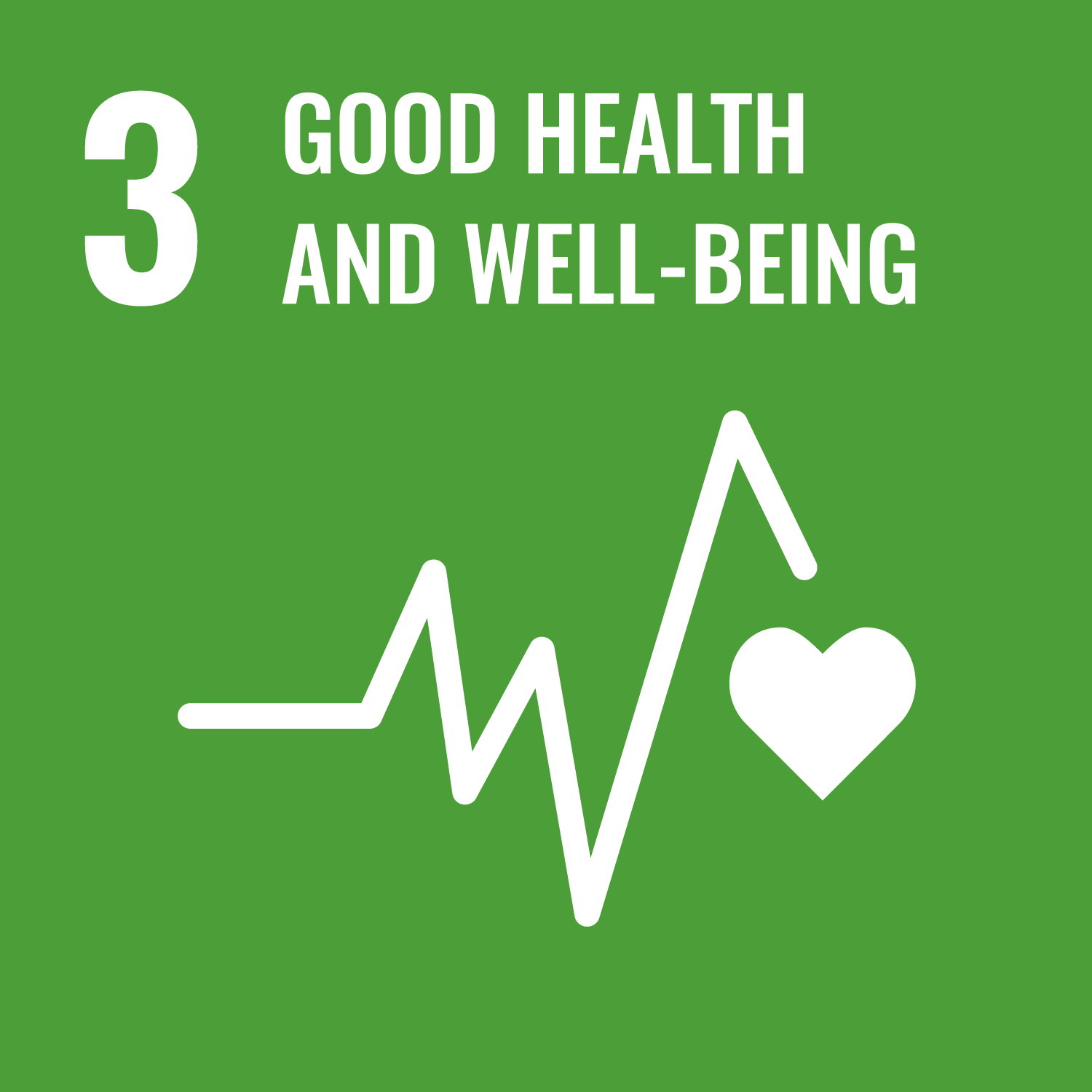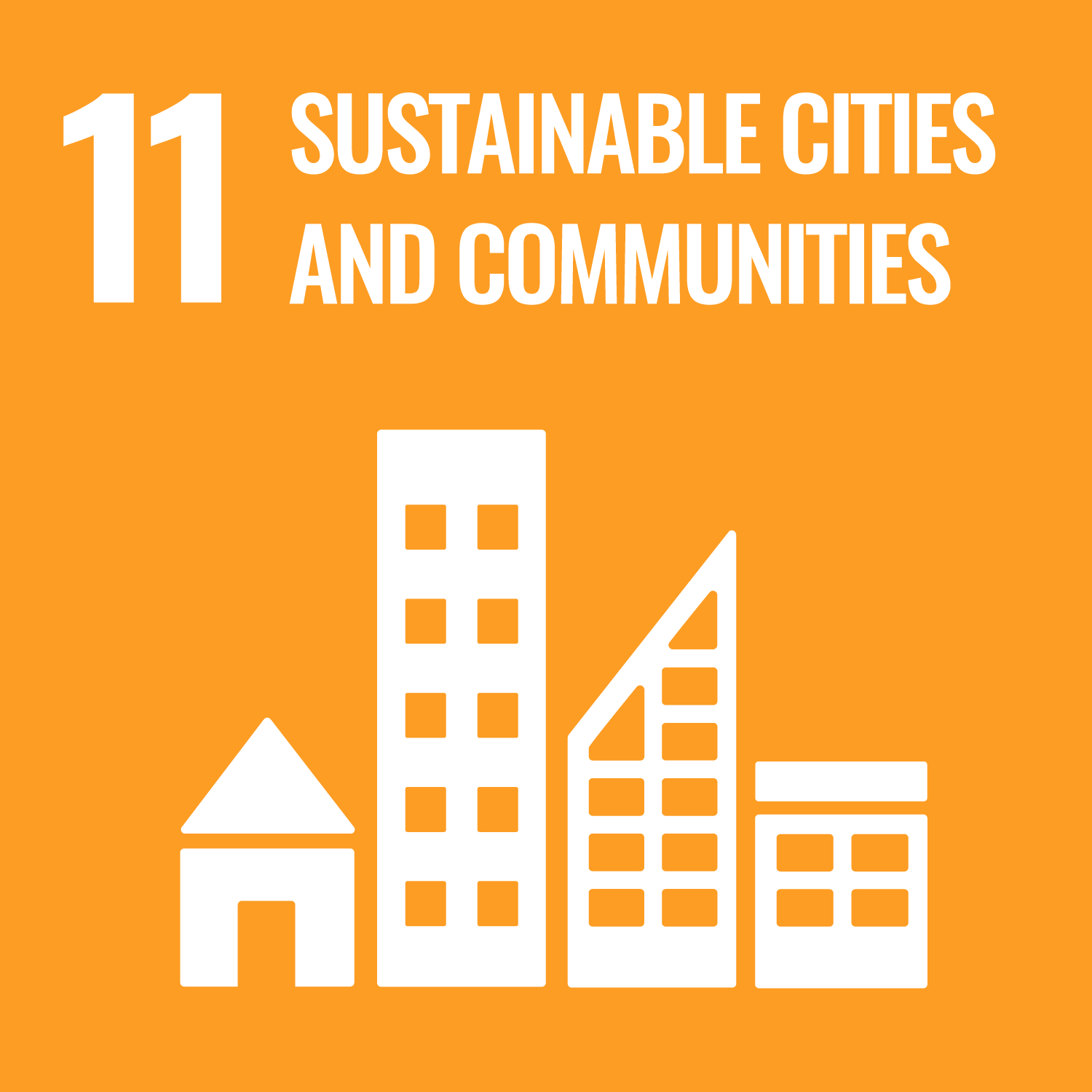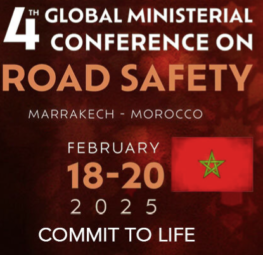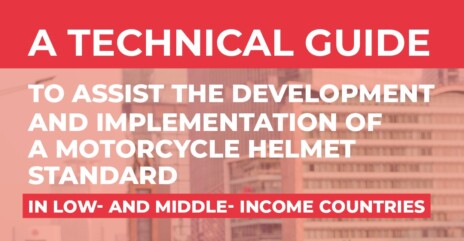GRSP South Africa partner has an unusual message: ‘We don’t want new members’
At a service station on a national highway in South Africa’s Guateng province, five men in wheelchairs wait for the next customer to pull in for a quick fill-up. Wearing bright orange bibs, holding clipboards and approaching motorists with a friendly smile, they appear to be members of a club or a group of some sort, taking a survey or seeking pledges for charity.
But as they engage the travelers in conversation, it’s clear they are not asking for contributions, or hoping to find new members. In fact, it’s quite the opposite. “We don’t want new members,” the men tell those who take a minute to listen. “So always buckle up your seatbelt when you drive.”
If the driver expresses interest, the conversation continues. Roughly 450 people per year suffer from serious spinal cord injuries due to road crashes in South Africa, the workers tell drivers, and seat-belts reduce the risk of those injuries. Then they ask the drivers if they would be willing to sign a pledge saying they will always use their seat-belt when driving.
Clearly, it’s not your typical campaign. The “Buckle Up, we don’t want new members,” project is run by South Africa’s QuadPara Association (QASA), an organization that provides services and support for quadriplegics and paraplegics.
The campaign is the brainstorm of QASA national director Ari Seirlis, whose enthusiasm for the programme is infectious. Already an energetic road safety proponent who speaks a mile a minute, Seirlis talks even faster as his excitement about the project mounts.
“It’s awesome,” he says. “The garage becomes more popular because people know that if they go there, they get a license-plate sticker and have a chance to talk to one of our members. The campaign is great because the slogan kind of makes people smile and yet it’s a serious message. People have the sense that they are participating in something good.”
On average, the project employs 42 members of the QuadPara Association during festive seasons when traffic volume increases. For the wheelchair-bound, it’s also an opportunity. “They have a chance to get good jobs – 200 rand a day – which is good wage in this country,” he says. “They get the opportunity to get out socialize, and usually the garage owners will give them some food and refreshments.”
Similarly, the GEAR UP project, supported by the Steel Wings motorcycle club, encourages motor cyclists to use appropriate and safe riding gear. If they sign the Gear Up pledge, motorcycle users receive a button badge for their riding jacket that read: “Gear Up – We don’t want new members”.
At other times during high-traffic holidays, the association installs a jumping castle on the side of highways for families to stop and let their kids spend some energy. “For the public of South Africa, it’s a chance to see that we’re not asking for handouts,” says Seirlis, who himself became quadriplegic after a diving accident in 1985. “We are giving back. We don’t want anything just for you to use your seat-belt.”
This Road safety initiative is a partnership between Arrive Alive, a multi-sector road safety project of Sanral, South Africa’s road transport ministry. A long-time member of GRSP South Africa, QASA offers a wide range of education, housing and employment training services. About 15 percent of its budget is dedicated toward prevention.
“I love this project,” Seirlis says. “If there was only one project that I ended up with, I think this would be it. It’s great because it gives us the opportunity to make us extinct.”
Related news






